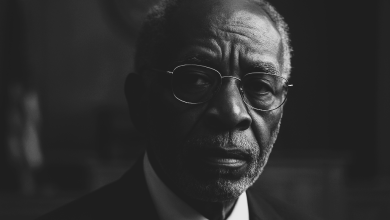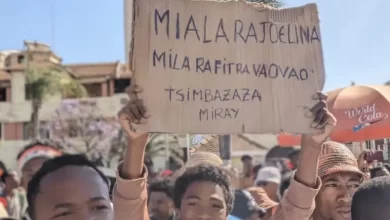The Cost of Corruption: How Legal Loopholes Enabled Africa’s Biggest Heists
Authored by: Ivy Mezongo Esq

The Cost of Corruption – Lessons from South Africa & Nigeria
Corruption does not exist in isolation—it thrives where legal loopholes allow it to flourish. Across Africa, multi-billion-dollar corruption scandals have drained national wealth, weakened institutions, and eroded public trust. Two of the most infamous cases, South Africa’s Gupta State Capture and Nigeria’s Malabu Oil Scandal, illustrate how the law can be manipulated to enable fraud at the highest levels.
This article examines these scandals from a legal perspective, analyzing how they happened, the legal battles that followed, and the urgent reforms needed to prevent future abuses.
Case 1: The Gupta State Capture Scandal (South Africa)
How Corruption Took Over the State
The Gupta State Capture Scandal refers to how the Gupta family, a wealthy Indian-born business dynasty, allegedly manipulated government institutions under the administration of former President Jacob Zuma.
Through a network of corrupt officials and business executives, the Guptas:
- Influenced government contracts worth billions.
- Took control of state-owned enterprises like Eskom (energy), Transnet (transport), and Denel (arms manufacturing).
- Facilitated ministerial appointments to benefit their business interests.
The Legal Loopholes That Enabled the Scandal
-
Lack of Strong Public Procurement Laws
- Many contracts were awarded without proper competitive bidding.
- The Public Finance Management Act (PFMA) was ignored or manipulated to approve inflated deals.
-
Weak Oversight by Law Enforcement
- South Africa’s National Prosecuting Authority (NPA) was slow in pursuing corruption cases, allowing the Guptas to operate for years.
-
Use of Money Laundering & Shell Companies
- The Guptas allegedly funneled money through international banks and Dubai-based shell companies, making it difficult for South African law enforcement to track stolen funds.
Legal Actions & Challenges
-
State Capture Inquiry (Zondo Commission)
- Established in 2018, the Zondo Commission investigated the scandal, gathering thousands of pages of evidence.
- The commission’s final report recommended prosecutions against former officials, including Jacob Zuma.
-
Extradition Battles
- The Gupta brothers were arrested in Dubai in 2022, but legal delays have stalled their extradition to South Africa.
- The lack of a strong international extradition framework has allowed them to avoid trial.
Lessons & Reforms Needed
- Stronger Procurement Laws: Tightening regulations on state contracts.
- Enhanced Anti-Money Laundering Laws: Stopping illicit financial flows before they leave the country.
- Judicial Independence: Ensuring political leaders cannot interfere in corruption investigations.
Case 2: The Malabu Oil Scandal (Nigeria)
How $1.3 Billion Disappeared
The Malabu Oil Scandal revolves around OPL 245, one of Nigeria’s richest offshore oil fields. In 1998, the oil block was controversially awarded to Malabu Oil & Gas, a company allegedly linked to former Petroleum Minister Dan Etete.
In 2011, the Nigerian government—through a settlement agreement—allowed Malabu to sell the oil block to Shell and Eni for $1.3 billion. However, investigations later revealed:
- A large portion of the money was funneled to Nigerian politicians.
- The deal allegedly involved bribery and fraud at the highest levels.
- The Nigerian people never benefited from the proceeds of the sale.
The Legal Loopholes That Enabled the Scandal
-
Lack of Transparency in Oil Licensing
- The deal was signed in secrecy, without proper public scrutiny.
- The Petroleum Act at the time had weak anti-corruption safeguards.
-
Corporate Complicity & Weak Due Diligence
- Major international oil companies (Shell & Eni) failed to flag the illicit nature of the deal, despite red flags.
-
Slow and Fragmented Legal Action
- Cases were filed in multiple jurisdictions (Nigeria, Italy, UK, Netherlands), causing delays in prosecution.
- Legal technicalities have allowed powerful figures to escape accountability.
Legal Actions & Challenges
-
Nigeria’s EFCC vs. Shell & Eni
- Nigeria’s Economic and Financial Crimes Commission (EFCC) charged Shell and Eni executives with corruption and conspiracy.
- The companies denied wrongdoing and said they were unaware of the bribes.
-
Italy’s Trial & Acquittal
- Italian courts conducted a lengthy trial against Shell and Eni executives.
- In 2021, a Milan court acquitted all accused, citing a lack of sufficient evidence.
-
Ongoing Civil Litigation
- Nigeria is still pursuing civil lawsuits to reclaim stolen funds, but legal obstacles remain.
Lessons & Reforms Needed
- Stronger Anti-Corruption Oversight in Oil Deals: New laws must ensure all energy contracts are transparent and publicly reviewed.
- International Cooperation: African nations must push for better cross-border legal collaboration to recover stolen wealth.
- Harsher Penalties for Corporate Complicity: Multinational companies should be held legally accountable for bribery and fraud.
Comparative Analysis: What These Cases Reveal About Africa’s Legal Systems
| Issue | Gupta Scandal (South Africa) | Malabu Oil Scandal (Nigeria) |
|---|---|---|
| Corruption Type | State Capture & Procurement Fraud | Oil Sector Bribery & Fraud |
| Legal Loopholes | Weak procurement oversight, political interference | Lack of transparency in oil licensing, corporate bribery |
| Key Legal Challenges | Extradition difficulties, slow prosecution | International legal delays, corporate deniability |
| Reforms Needed | Stronger judicial independence, procurement transparency | Stricter oil sector regulations, corporate accountability |
Fighting Corruption Through Legal Reform
The Gupta and Malabu scandals expose the deep legal flaws that allow corruption to thrive in Africa. However, they also provide clear lessons on how to prevent future scandals:
- Closing Legal Loopholes: Strengthening procurement and energy laws to prevent fraud at the source.
- Empowering Anti-Corruption Agencies: Ensuring bodies like South Africa’s NPA and Nigeria’s EFCC have full independence.
- Enhancing International Legal Collaboration: Preventing corrupt actors from escaping through offshore accounts and foreign jurisdictions.
If Africa is to secure its economic future, legal systems must evolve to outpace corruption. Without urgent reforms, the continent risks losing even more wealth to those who exploit legal blind spots for personal gain.




